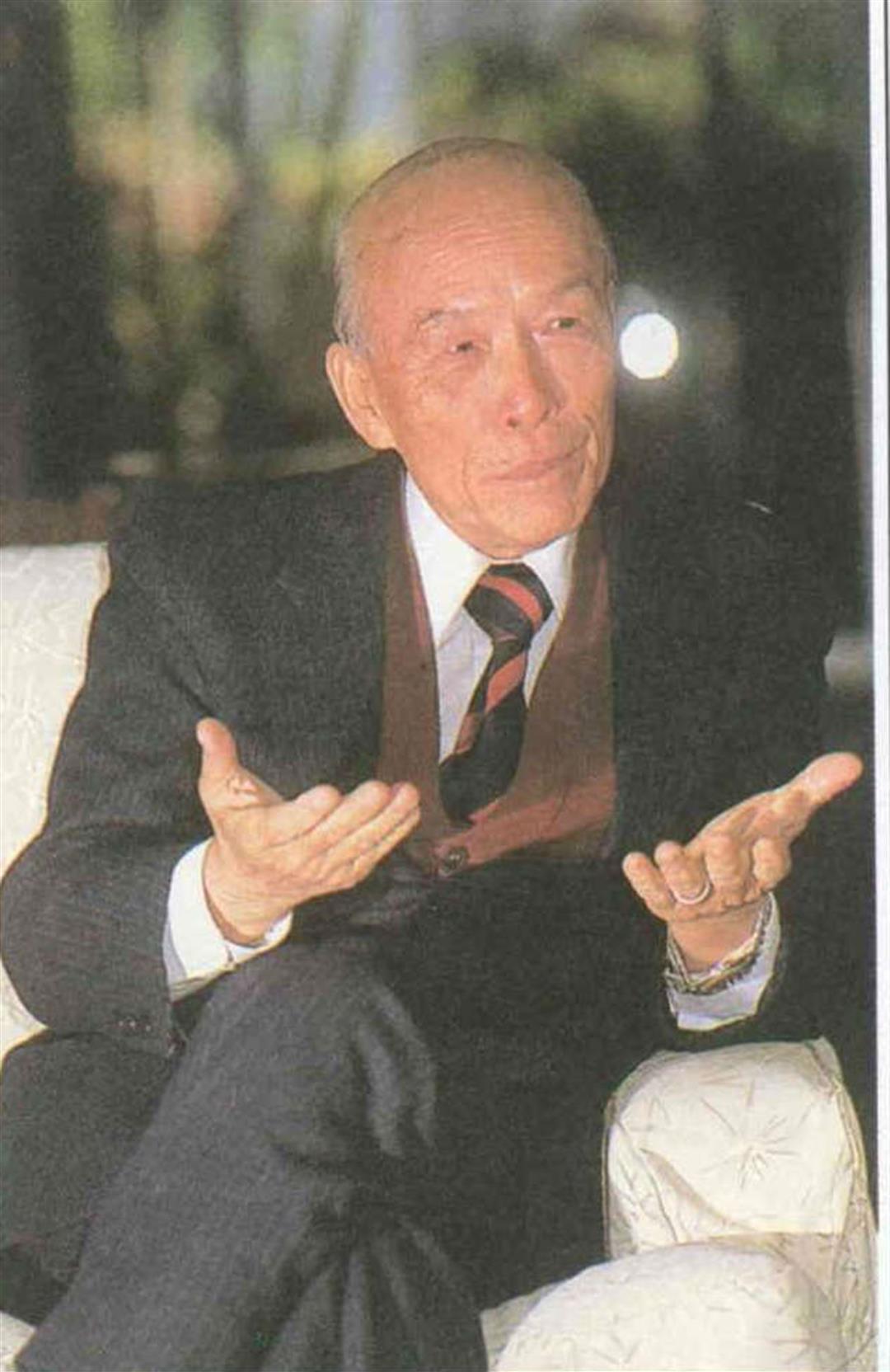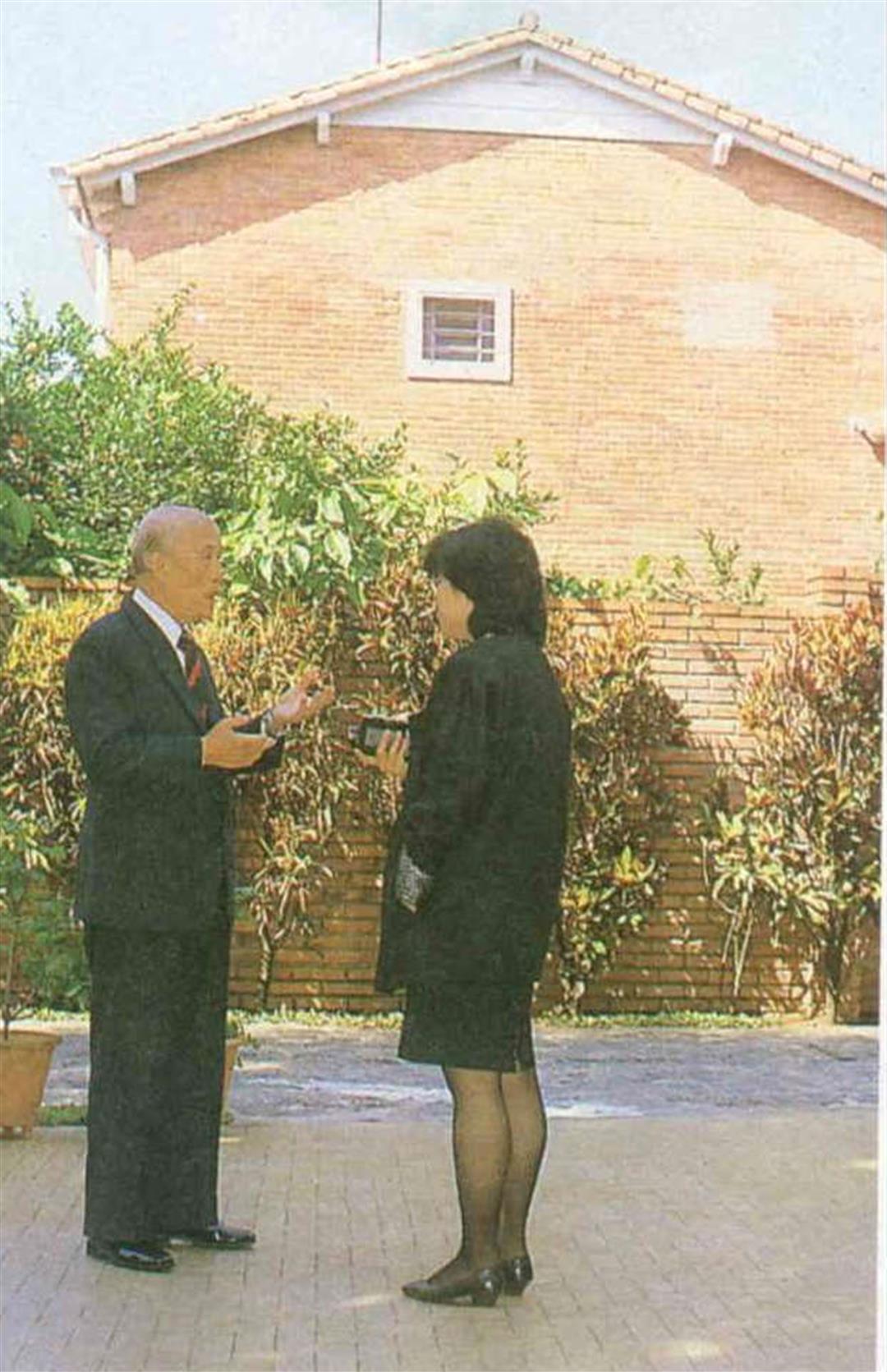Q: In November this year you will have served a full five years as ambassador of the R.O.C. to Paraguay. We know that you were a former soldier. After holding the civil post of ambassador the subject and nature of your job was different. What adjustments did you have to make?
A: I didn't have to make any adjustments, but had to learn from the beginning. I was a new recruit in foreign affairs. Now that I've been "drafted" into diplomatic service my training is yet to be complete. Moreover, the habits of a man from a civilian background and those of soldiers are not the same. Practically speaking, I had to relearn from the start.
Q: Some people say that soldiers can only go forward in battle. Diplomacy on the other hand is the task of compromising and negotiating. What is your opinion?
A: There are similarities between the two. Likewise there are points of difference. Soldiers head for the battlefield. Most people feel that diplomacy is a sort of officialdom, but I soon discovered that diplomacy is also a battlefield. The Chinese Communists will never give up their purpose of isolating us. Therefore, in today's diplomatic work it's easy to criticize. Doing a truly good job is not an easy task.
The difference is that in the military it's rather easy to follow a command or carry out an action. It's easy to be thorough and see results. With diplomacy you may have an idea which may be difficult to carry out, the results are rather slow, and it's not easy to know what the outcome will be at once.
Q: In that case when you first became ambassador didn't you feel very anxious?
A: It's difficult to avoid being anxious, but this is not to say that at the beginning I was very anxious and now I'm not anxious. On the contrary, the extent of my anxiety has increased with each passing day.
Q: Why?
A: Because when you first start you may discover merely a few problems. Later, you gradually discover more and more problems so the burden becomes greater.
Q: What concerns you most about R.O.C.-Paraguay relations?
A: The relationship between the R.O.C. and Paraguay is very friendly. There seems to be few places in the world outside of the R.O.C. where there is a statue of Chiang Kai-shek, except for Paraguay where there are two. There is also a street named after Chiang Kai-shek. Most important is that the government of Paraguay, its people, and party policy are all strongly anti-communist. Especially Paraguayan President General Alfredo Stroessner. There are few people in the world who oppose communism so thoroughly as he does. With a few exceptions he has not set up diplomatic channels with any communist country.
Ideally speaking, in such a good environment there shouldn't be any problems, but the Chinese Communists will never give up. If we are not fully alert then we may fall into a trap without knowing it. So the more we carry on the more concerned we become.
Q: It's been said that President Stroessner and you share a close friendship.
A: It may be because we were both soldiers that we get along well. At the same time he understands my intentions and methods.
Q: Many familiar with the situation in Paraguay feel that only under the leadership of President Stroessner can the R.O.C. and Paraguay maintain friendly, close relations, but if the leadership should change then it's difficult to say what may happen. What do you think? Also, President Stroessner is already more than seventy years old. What is the condition of his health?
A: President Stroessner is in good health. He's industrious and his memory is especially keen. He goes to work around seven every morning-truly a president who cares for his people. Although he was unable to attend our national day celebrations this year, the party accompanying him is sure to be deeply impressed by the R.O.C. on a similar visit in the future. This is very important.
Much of the work that we have done here has been that of planting and weeding. I believe that in ten or twenty years from now our labor will certainly yield good results.
Q: What is one of your accomplishments of which you are most proud?
A: A common person like myself has taught for ten years and am recognized by the Ministry of Education as being a qualified professor. In the military I was a full general. I have been a member of the Central Committee of the Kuomintang for more than thirty years, and was also a member of the Central Standing Committee. When it was time for me to retire I was given the position of ambassador and allowed the opportunity to do my best for my country. This is something of which I'm most proud. So after I came here I did my utmost in hopes of doing the best job possible when it comes to diplomacy and affairs concerning overseas Chinese.

An Interview with Wang Sheng in Paraguay.

An Interview with Wang Sheng in Paraguay.